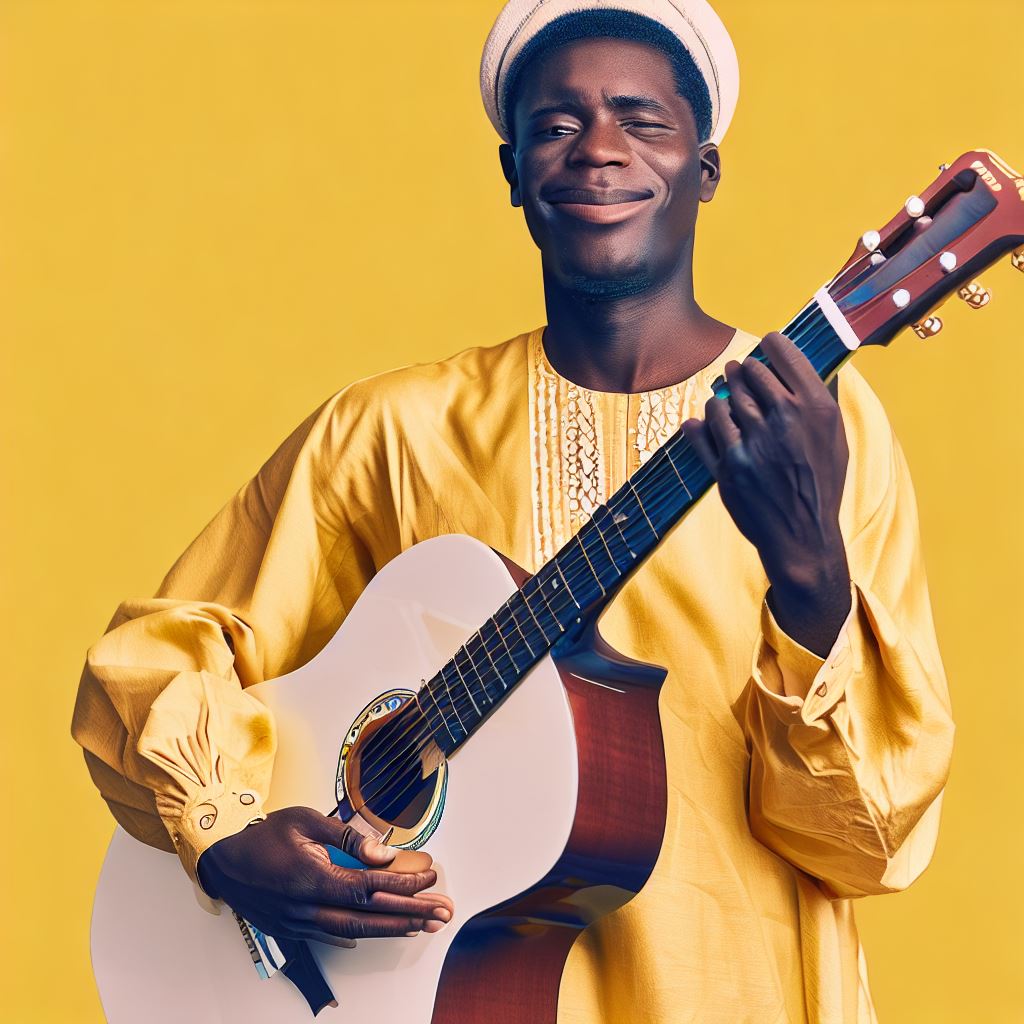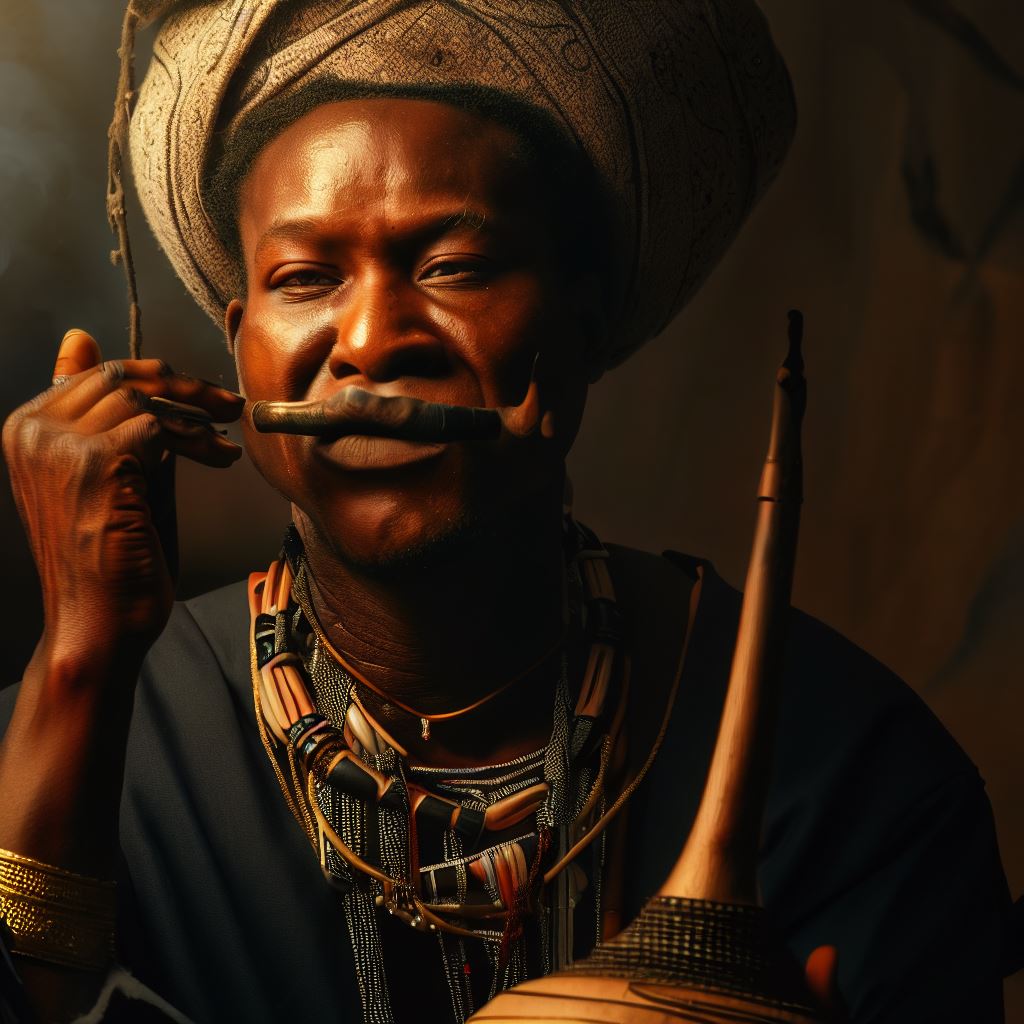Introduction
Let’s explore navigating challenges: Songwriting in Nigeria.
In the vibrant tapestry of Nigeria’s cultural landscape, music holds a revered position, acting as a powerful medium of expression, storytelling, and societal reflection.
Within this dynamic musical realm, the craft of songwriting emerges as a cornerstone, providing the lyrical foundation upon which melodious narratives are woven.
However, delving into the nuanced terrain of songwriting in Nigeria unveils a multifaceted landscape marked by a confluence of creativity, tradition, and contemporary challenges.
Navigating challenges while songwriting in Nigeria requires a unique blend of talent, perseverance, and adaptability.
This exploration embarks on a journey through the intricacies and triumphs of Nigerian songwriting, shedding light on the artists, influences, and obstacles that shape this captivating facet of the nation’s artistic legacy.
From the rhythmic beats of Afrobeat to the soulful strains of highlife, this narrative unravels the rich tapestry of Nigeria’s songwriting tradition, offering a comprehensive insight into an art form that transcends boundaries and resonates with audiences far beyond its borders.
Join us as we navigate the complexities and celebrate the brilliance of songwriting in Nigeria, a narrative that mirrors the essence of a nation’s musical heartbeat.
The Evolution of Nigerian Music
A brief history of Nigerian music
- Nigerian music has a rich and diverse history, dating back to ancient times.
- Traditional Nigerian music incorporated various instruments like drums, flutes, and stringed instruments.
- The colonial era introduced Western music influences, including hymns and brass bands.
- In the 1960s and 1970s, Nigerian music experienced a surge in popularity with the rise of highlife and Afrobeat genres.
- Fela Kuti, a Nigerian musician, pioneered Afrobeat, blending traditional African rhythms with jazz and funk elements.
- Nigerian musicians also drew inspiration from other genres like reggae, hip-hop, and R&B.
Various genres and their popularity
- Afrobeat: This genre remains one of the most popular genres in Nigeria and globally.
- Highlife: Known for its lively rhythms and melodic guitar sounds, highlife still has a strong following in Nigeria.
- Juju: Juju music, with its fusion of Yoruba folklore and Western influences, gained popularity in the 1980s.
- Gospel: Gospel music, deeply rooted in Christian beliefs, has a widespread appeal across Nigeria.
- Hip-hop: With the rise of urban culture, Nigerian hip-hop has gained significant popularity among the youth.
- Afro-pop: This genre has become a global sensation, blending African sounds with modern pop and dance elements.
Importance of songwriting in Nigerian music industry
- Songwriting plays a vital role in shaping the Nigerian music industry.
- It allows artists to express their creativity, emotions, and social commentary through lyrics.
- Well-crafted songs can connect with audiences, making them relatable and timeless.
- Songwriters contribute to the diversity and vibrancy of Nigerian music by exploring various themes and narratives.
- Good songwriting skills are essential for artists to stand out in a highly competitive industry.
- Nigerian songwriters have the opportunity to influence societal change through their thought-provoking lyrics.
In short, Nigerian music has evolved significantly over the years, blending traditional and Western influences.
The country boasts a vast array of genres that cater to diverse audiences.
Songwriting remains a crucial component of the music industry, enabling artists to convey their messages effectively.
As Nigeria’s music scene continues to thrive, songwriters will undoubtedly play a vital role in shaping its future.
Read: Nigerian Film Hair Stylists: Pioneers in African Cinema
Challenges Faced by Songwriters in Nigeria
Limited infrastructure and resources for songwriters
The lack of well-equipped music studios makes it difficult for songwriters to produce high-quality music.
A shortage of musical instruments and equipment hampers the creative process of songwriting.
Transform Your Career in Nigeria
Discover unmatched expertise with our personalized Career Consulting service. Navigate Nigeria’s job market with a strategy tailored just for you.
Get StartedInadequate access to advanced recording technology restricts the ability to experiment with different sounds.
Copyright issues and intellectual property protection
Songwriters often face challenges in securing copyright protection for their original compositions.
The absence of an efficient legal system makes it challenging to defend their intellectual property from infringement.
Cultural expectations and pressure to conform
Nigeria’s diverse culture sometimes influences songwriters to produce music that caters to specific tastes.
Songwriters may face resistance when attempting to deviate from popular genres or styles of music.
Limited support and recognition for songwriters
Songwriters often struggle to find financial support or sponsors for their projects.
In fact, navigating the challenges of songwriting in Nigeria can be a daunting task for many aspiring songwriters.
The limited infrastructure and resources, copyright issues, cultural expectations, and lack of support and recognition all pose significant barriers.
However, despite these challenges, Nigeria has a rich musical heritage and immense talent.
With the right support and a favorable environment, Nigerian songwriters can overcome these hurdles and shine on the global stage.
Read: The Impact of Western Styles on Nollywood Hair Design

Strategies for Navigating Songwriting Challenges in Nigeria
Collaborations and networking opportunities
Engaging in collaborations with fellow songwriters can enhance creativity and provide a fresh perspective.
Attending music industry events and networking with professionals opens doors for potential collaborations.
Forming connections within the industry can lead to opportunities for co-writing or getting songs recorded by established artists.
Collaborating with artists from different genres can help expand one’s musical style and audience reach.
Being part of songwriting communities and forums allows for networking with like-minded individuals.
Utilizing digital platforms and social media
Using social media platforms like Instagram and Twitter to connect with fans and showcase songwriting talent.
Creating professional profiles on music streaming platforms like Spotify and SoundCloud to reach a wider audience.
Sharing snippets of works in progress on platforms like YouTube to receive feedback and build a fan base.
Collaborating with producers and musicians online through platforms like SoundBetter and Fiverr.
Engaging with fans through interactive livestreams and Q&A sessions on platforms like Facebook Live or Twitch.
Advocating for proper copyright laws and protection
Joining organizations like the Performing Musicians Association of Nigeria (PMAN) to voice concerns and lobby for better laws.
Educating oneself about copyright laws and ensuring that songs are properly registered with the Nigerian Copyright Commission.
Seeking legal advice and registering songs with Collective Management Organizations (CMOs) to protect intellectual property rights.
Publish Your Professional Profile, Business or Brand
Showcase your expertise, gain trust, and boost visibility instantly on Professions.ng.
Publish NowMonitoring music distribution channels to prevent unauthorized use and making use of platforms like Audiam to collect royalties.
Campaigning for stricter enforcement of intellectual property rights and penalties for copyright infringement in Nigeria.
Embracing cultural influences while maintaining creative authenticity
Incorporating elements of traditional Nigerian music into songwriting can create a unique and authentic sound.
Exploring different local languages and dialects in lyrics broadens the artistic expression and appeals to diverse audiences.
Studying and understanding the history and cultural significance of Nigerian music helps in creating meaningful compositions.
Fusing Nigerian traditional instruments with modern production techniques gives songs a distinctive and captivating flavor.
Collaborating with traditional musicians and incorporating their expertise contributes to a rich and culturally diverse music scene.
In essence, navigating songwriting challenges in Nigeria requires a combination of strategies.
Collaborating with fellow songwriters, utilizing digital platforms and social media, advocating for proper copyright laws, and embracing cultural influences are all crucial steps.
By taking advantage of networking opportunities, protecting intellectual property, and staying true to one’s creative vision, Nigerian songwriters can overcome challenges and thrive in a competitive music industry.
Read: Behind the Scenes: The Life of a Nollywood Hair Stylist
Success Stories of Nigerian Songwriters
- Fela Kuti: Overcame political oppression to become the pioneer of Afrobeat music.
- Tiwa Savage: Battled gender biases to become one of Nigeria’s biggest female songwriters.
- Burna Boy: Faced rejection but persisted, gaining international recognition for his unique sound.
These success stories highlight the resilience and determination of Nigerian songwriters.
Despite the challenges they faced, they managed to overcome obstacles and achieve remarkable success.
Notable Nigerian songwriters who overcame challenges
Fela Kuti, often referred to as the “King of Afrobeat,” faced immense political oppression during his career.
His music, known for its social and political commentary, drew attention to the injustices in Nigeria.
Despite constant persecution, Fela Kuti’s music resonated with the people and gained international acclaim.
His legacy continues to inspire generations of Nigerian songwriters.
Tiwa Savage, a talented songwriter and performer, had to navigate through gender biases in the Nigerian music industry.
She faced criticism and unfair treatment but remained resilient.
Today, she is recognized as one of Nigeria’s top female artists, breaking barriers and paving the way for aspiring female songwriters.
Burna Boy’s journey to success was filled with rejection and setbacks.
However, he stayed true to his craft and created a unique Afro-fusion sound that captured global attention.
With his Grammy-winning album “Twice as Tall,” Burna Boy has firmly established himself as one of Nigeria’s most successful songwriters.
Successful collaborations and their impact
Successful collaborations have also played a significant role in boosting Nigerian songwriters’ careers.
Wizkid’s collaboration with Drake on “One Dance” not only showcased his talent but also introduced Afrobeat to a wider audience.
Similarly, Beyoncé’s collaboration with Wizkid on “Brown Skin Girl” elevated his profile and contributed to his global recognition.
Davido’s collaboration with Chris Brown on “Blow My Mind” opened new doors for him in the international music scene.
These collaborations not only provided exposure but also helped Nigerian songwriters gain credibility and expand their fan bases.
Inspiring anecdotes of songwriters finding recognition and success
In addition to these notable successes, there are countless inspiring anecdotes of songwriters who found recognition and success against all odds.
Olamide, for instance, rose from the streets with his rap music and became one of Nigeria’s most influential artists.
Simi, despite facing rejection early in her career, persevered and is now celebrated for her soulful and relatable songs.
Phyno, with his indigenous rap style, proved that one’s background does not limit their potential in the music industry.
The success stories of Nigerian songwriters serve as a testament to their talent, hard work, and determination.
Despite numerous obstacles and challenges, they have found their voice and made a lasting impact on the music industry, both in Nigeria and globally.
Read: Film Hair Stylists: Unsung Heroes of Nigerian Cinema
Conclusion
The challenges of songwriting in Nigeria are vast and unique, but not insurmountable.
Throughout this blog section, we have explored the main points and challenges faced by songwriters in Nigeria.
To aspiring songwriters in Nigeria, I encourage you to persevere and overcome these challenges.
In summary, while there may be obstacles, the future of songwriting in Nigeria is bright and filled with endless possibilities.




